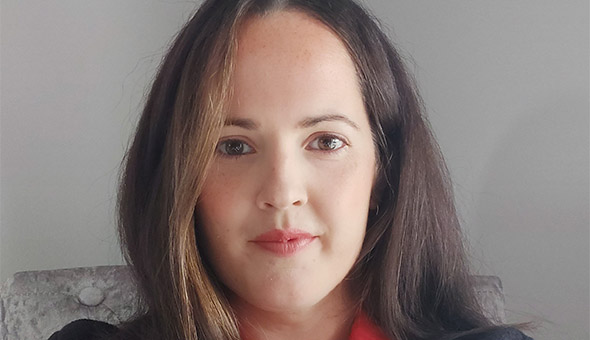Interview Claire Donoghue: “Working as a multi-stakeholder group is vital to the success of the ERBS.”
24th September 2020
The continuing development of the European Roundtable for Beef Sustainability (ERBS) enters a new phase to improving beef sustainability in Europe. The recently elected board represents an important cross-section of beef stakeholders that includes processors (Claire Donoghue, Board Chair, OSI and Estelle Rabourdin, Moy Park), retailers and services (Nigel Edwards, Board Vice Chair, Hilton Food Group and Peter Garbutt, McDonald’s) and allied industries (Ian Stevenson, Livestock and Meat Commission for Northern Ireland and Mick Houlihan, Bord Bia).

Taking on the position as Board Chair of the ERBS, is Claire Donoghue. A key driver of the ERBS since its initiation, Claire has been working in the beef industry for over 10-years and right now, holds a European role within OSI, one of the world’s largest privately-owned food providers, as Operations Director and Head of Sustainability. ERBS Manager, Bulle Pouzoulet, caught up with Claire to find out why ERBS is so important to her and what she sees in the future for beef sustainability.
Bulle Pouzoulet: What motivated you to run for the ERBS Board and ultimately chair it?
Claire Donoghue: In recent years the sustainability challenge faced by the industry has been elevated to the top of the agenda. Part of my role in OSI was developing a sustainability strategy for the European division. I believe that if we truly want to have meaningful impact on the beef industry, we need to move as one. The ERBS, in line with the Global Roundtable for Sustainable Beef (GRSB) provide a part of the solution here. OSI has been a big advocate for both groups from their inception so my involvement was fully endorsed from the business and personally it was an honour to be named Chair.
BP: You’ve been a part of the ERBS since the beginning in 2018, but what was your role up until now?
CD: I have been deeply involved in the strategic direction of the ERBS, as chair of the ERBS Technical Working Group, which developed strategies to recognise national and local beef sustainability programmes. Rather than develop new standards, the ERBS offers recognition to existing sustainability initiatives that commit to achieving eight common sustainability targets. These ERBS targets include a 15% intensity reduction in GHG emissions and 50% reduction in the use of certain animal medicines (those labelled “Highest Priority Critically Important Antimicrobials” by the World Health Organisation) by 2023.
BP: What has been a highlight for you personally over the last 2-years since the launch of the ERBS?
CD: Setting the targets was an enormous task. It showed a serious level of commitment from all the countries involved to complete the materiality analysis, research their national challenges, consult with stakeholders and ultimately agree on targets at a European level. But we got there in the end and to me it has to be the biggest milestone of the group to date.
BP: Why is it important to have a cross-section of stakeholders in the ERBS, from farmers to civil society?
CD: Working as a multi-stakeholder group is vital to the success of the ERBS. The sustainability concerns facing the beef industry are broad and many of them are complex. Working with our five constituencies (Producers, Allied Industry, Processors, Retail and Food Service, Civil society) allows us to get expertise and insights from all sides of the spectrum meaning we can make informed decisions and take the best course of action to achieve outcomes for the industry.
BP: How do you see the ERBS as we look ahead?
CD: Tracking the progress of the recognised programmes and platforms towards our targets will remain a top priority for the ERBS. We are an outcome focused group so expanding our representation to additional members and more European countries will benefit the industry as a hole. I also see closer collaboration with the GRSB as they work to draft global goals for the beef industry.